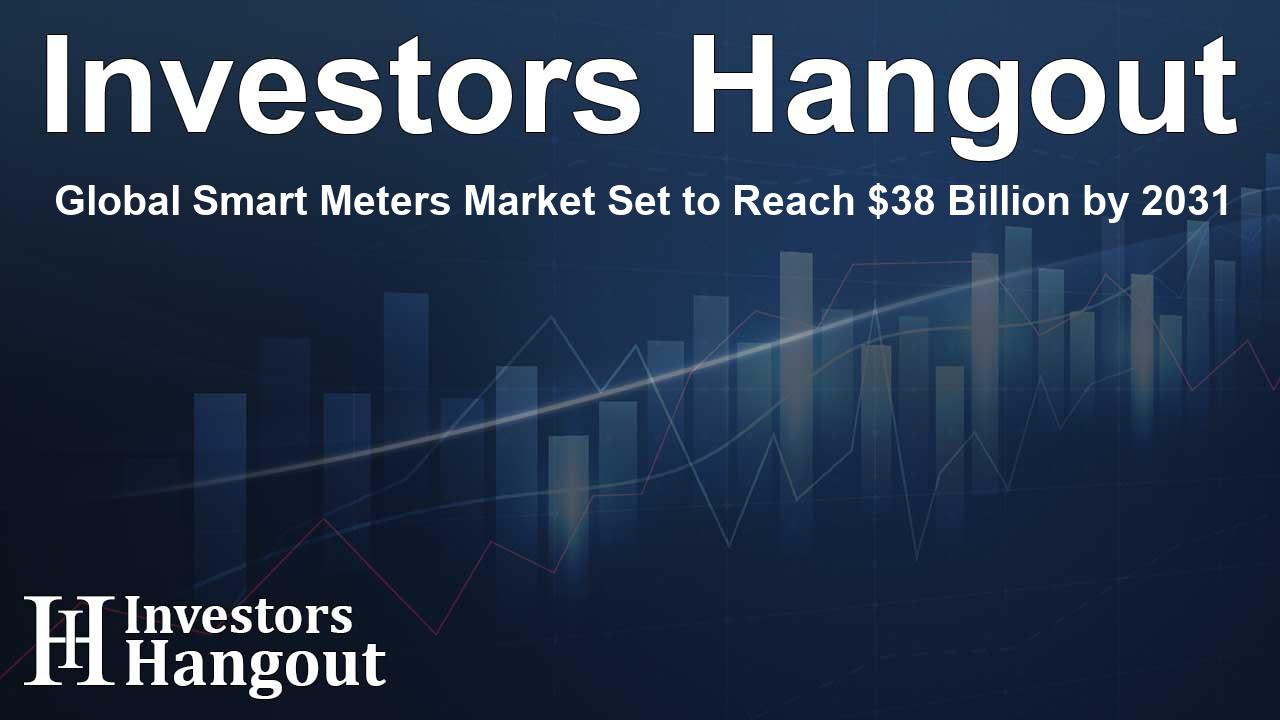Global Smart Meters Market Set to Reach $38 Billion by 2031

Smart Meters Market: Growth at a Glance
The Global Smart Meters Market is on a steady upswing, projected to reach USD 38 billion by 2031. That trajectory reflects a compound annual growth rate (CAGR) of 8%, underscoring how quickly utilities and end users are adopting smarter, more precise energy management tools.
What’s Powering the Expansion
Government regulations and energy policies
Policy is a major catalyst. Around the world, governments are rolling out rules and standards to boost energy efficiency and modernize grids. Many of these policies either mandate or strongly encourage the use of smart metering systems to better track usage and manage demand. For manufacturers and solution providers, this creates a dependable baseline of demand and a predictable environment to plan investment and production.
Integration of IoT and advanced data solutions
Smart meters don’t stand alone—they plug into broader Internet of Things (IoT) networks and data platforms. This pairing enables real-time visibility into consumption, supports predictive maintenance, and helps utilities make quicker, better-informed operational decisions. As organizations shift toward intelligent, connected energy systems, interest in meters with robust analytics and communication capabilities keeps climbing.
Consumer demand for transparency
People want clear, accurate bills—and the ability to see what drives their costs. Smart meters deliver granular, near real-time usage data, which lets households, businesses, and industrial users spot patterns, change behaviors, and trim waste. That expectation for transparency is pushing utilities to accelerate deployments and opening the door for suppliers to offer differentiated, feature-rich meters.
Headwinds to Watch
High initial costs of deployment
Upfront investment remains a sticking point. Installing meters at scale, upgrading or integrating with existing infrastructure, and configuring communication and data systems can be expensive. Add workforce training and change management, and the bill grows. Smaller utilities and budget-constrained markets may delay or phase projects, which can slow overall market momentum.
Data security and privacy concerns
Smart meters collect and transmit detailed consumption data. That raises valid questions about data protection, potential breaches, and cyber threats. Regulatory scrutiny is intense, and consumer trust is hard-won; both can influence adoption timelines—especially in regions with strict data protection laws where compliance requirements are rigorous.
Slower uptake in emerging markets
In many developing economies, foundational infrastructure projects often take priority over advanced metering. Limited budgets, lower awareness, and inconsistent policy support can put smart meter rollouts on the back burner. The result is a slower pace of adoption and, in turn, a narrower revenue runway for manufacturers in those regions.
Regional Snapshot
North America and Europe currently set the pace in smart meter adoption. Strong policy frameworks, mature grid infrastructure, and widespread comfort with IoT solutions make these regions natural early movers. Their investments and standards often influence practices elsewhere, shaping how the global market evolves.
Companies Steering the Market
Honeywell International Inc., Siemens AG, Itron Inc., Landis+Gyr AG, Sensus (a subsidiary of Xylem Inc.), Diehl Metering GmbH, Aeon Labs Inc., EDMI Metering LLC, and Kamstrup A/S play central roles. Their product strategies, balance of hardware and software innovation, and financial discipline help define competitive dynamics and signal where the market is heading next.
How the Market Breaks Down
Verified Market Research® outlines four main ways to view the Smart Meters Market: by Type, Technology, End-User, and Geography.
Market by Type
- Electric Meters
- Gas Meters
- Water Meters
Market by Technology
- Advanced Metering Infrastructure (AMI)
- Automatic Meter Reading (AMR)
- Hybrid Smart Meters
Market by End-User
- Residential
- Commercial
- Industrial
Market by Geography
- North America
- Europe
- Asia Pacific
- Latin America
- Middle East & Africa
Frequently Asked Questions
How fast is the Smart Meters Market growing, and what’s the outlook through 2031?
The market is expected to grow at a CAGR of 8% and reach USD 38 billion by 2031, reflecting steady adoption across utilities and end users.
What’s driving demand for smart meters right now?
Three forces stand out: government regulations that prioritize efficiency, the integration of IoT and analytics for real-time insight, and consumer demand for accurate, transparent billing.
Which regions are currently in the lead?
North America and Europe lead the way, supported by strong policy frameworks, advanced grid infrastructure, and broad acceptance of IoT-enabled solutions.
What are the main obstacles to wider adoption?
High upfront deployment costs, persistent data privacy and security concerns, and slower adoption in emerging markets are the primary hurdles.
Who are the major companies shaping this market?
Key players include Honeywell International Inc., Siemens AG, Itron Inc., Landis+Gyr AG, Sensus (a subsidiary of Xylem Inc.), Diehl Metering GmbH, Aeon Labs Inc., EDMI Metering LLC, and Kamstrup A/S.
About The Author
Contact Kelly Martin privately here. Or send an email with ATTN: Kelly Martin as the subject to contact@investorshangout.com.
About Investors Hangout
Investors Hangout is a leading online stock forum for financial discussion and learning, offering a wide range of free tools and resources. It draws in traders of all levels, who exchange market knowledge, investigate trading tactics, and keep an eye on industry developments in real time. Featuring financial articles, stock message boards, quotes, charts, company profiles, and live news updates. Through cooperative learning and a wealth of informational resources, it helps users from novices creating their first portfolios to experts honing their techniques. Join Investors Hangout today: https://investorshangout.com/
The content of this article is based on factual, publicly available information and does not represent legal, financial, or investment advice. Investors Hangout does not offer financial advice, and the author is not a licensed financial advisor. Consult a qualified advisor before making any financial or investment decisions based on this article. This article should not be considered advice to purchase, sell, or hold any securities or other investments. If any of the material provided here is inaccurate, please contact us for corrections.
